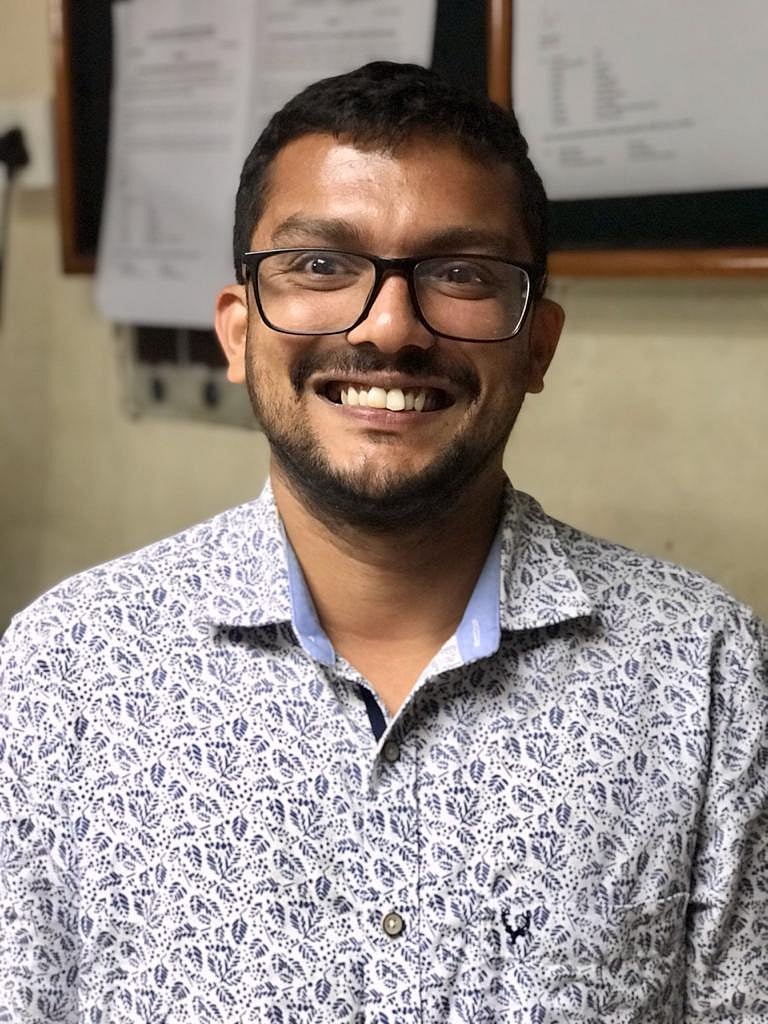Whose mosque is it anyway?

As the embers in the Gyanvapi mosque dispute in Uttar Pradesh were being fanned, right-wing groups in Karnataka got busy laying claim on several mosques in the state, with the ruling BJP maintaining a safe distance.
Mosques such as the Jamia Masjid in Srirangapatna, Malali Masjid near Mangaluru and Peer Pasha Dargah in Bidar, the groups contended, were built by demolishing Hindu temples.
While there were demonstrations held and petitions submitted to claim these structures as their own, the Hindu Jagarana Vedike released a list of 1,860 Islamic places of worship across India alleging that they were built by demolishing temples.
This list identified 191 mosques, dargahs, forts and mazars in different parts of Karnataka - the world famous Gol Gumbaz, forts at Bidar, Kalaburagi and Raichur among others - as being either ‘temple sites’, ‘built on top of temples’, ‘temple materials used’, ‘ancient Hindu city converted’ and so on.
Now, the Eidgah Grounds in Bengaluru’s Chamarajpet is the latest to hog the limelight.
Observers note that Hindu groups are pursuing such sensitive issues despite Rashtriya Swayamsevak Sangh (RSS) Sarashanghachalak Mohan Bhagwat’s stand against “trying to find Shivlings in every mosque.”
BJP leaders got involved in the Hubballi Eidgah and the Chikkamagaluru Baba Budangiri aka Datta Peeta cases. But, the party as such has kept away from the recent claims.However, some of its lawmakers such as Abhay Patil in Belagavi and Sharanu Salagar in Kalaburagi have made their assertions in the past few weeks.
According to observers, such developments are a sign of how the BJP is preparing ground for elections next year, given that ‘communal’ issues have made headlines since the turn of 2022.
Phaniraj of the Karnataka Communal Harmony Forum says that such communal incidents are along the lines of the ‘Uttar Pradesh model’ under which there is a sustained violence against minorities. “It is not like the communal riots of the past where curfew has to be imposed for four to five days. The model has changed,” he says.
“Heightening communal tensions in the state started with the Hijab row, followed by calls to ban Muslim traders selling wares near Hindu temples. Then there was issue of loudspeakers installed at mosques,” he notes, adding that the agitation against mosques is a part of this sustained agenda.
A section of Christians, on the other hand, is worried about the Karnataka Protection of Right to Freedom of Religion Act, known as the anti-conversion law, which is currently in force through an ordinance. Now that the BJP has a majority in the Legislative Council, the party will look to push for passage of the law.
Karnataka Congress working president Saleem Ahmed is of the view that BJP is resorting to “communal tactics” fearing an imminent defeat in the 2023 polls. “Congress has done well in all the recent elections. BJP knows that it won’t cross more than 60 seats in the 2023 polls,” he says.
Karnataka BJP general secretary Mahesh Tenginakayi says the party is not involved in any row related to mosques.
“The party has not and will not make it an issue,” he says. Statements made by MLAs are “their personal stand”, he adds. “The stand of the party, if any, will be made by the state president by issuing a statement.”
It can be seen that Chief Minister Basavaraj Bommai, who is presiding over the goings-on, gets ticked off when the pursuits of the ‘fringe’ elements are placed before him.
He has politely admonished journalists several times for asking questions on subjects other than development, the plank he wants to go to polls on.
Deccan Herald is on WhatsApp Channels| Join now for Breaking News & Editor's Picks